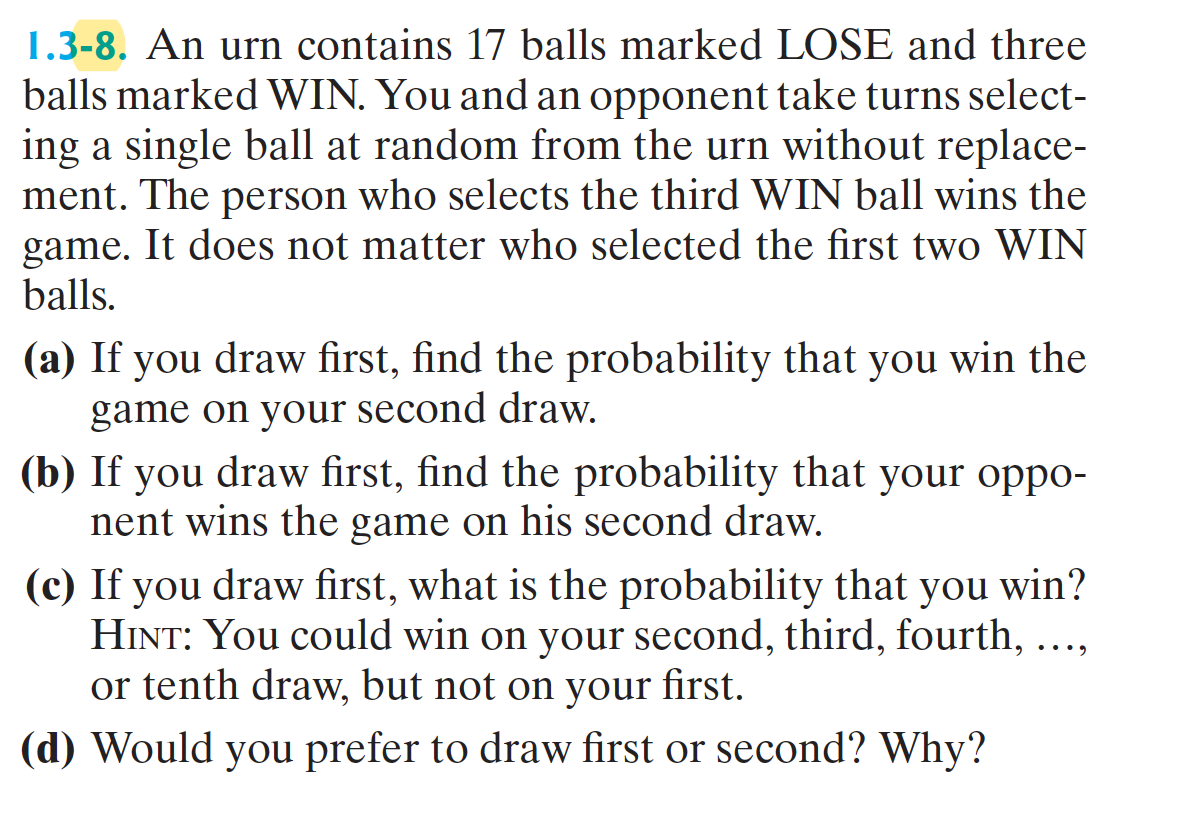1.3-8. An urn contains 17 balls marked LOSE and three balls marked WIN. You and an opponent take turns select- ing a single ball at random from the urn without replace- ment. The person who selects the third WIN ball wins the game. It does not matter who selected the first two WIN balls. (a) If you draw first, find the probability that you win the game on your second draw. (b) If you draw first, find the probability that your oppo- nent wins the game on his second draw. (c) If you draw first, what is the probability that you win? HINT: You could win on your second, third, fourth, .., or tenth draw, but not on your .... first. (d) Would you prefer to draw first or second? Why?
Quadratic Equation
When it comes to the concept of polynomial equations, quadratic equations can be said to be a special case. What does solving a quadratic equation mean? We will understand the quadratics and their types once we are familiar with the polynomial equations and their types.
Demand and Supply Function
The concept of demand and supply is important for various factors. One of them is studying and evaluating the condition of an economy within a given period of time. The analysis or evaluation of the demand side factors are important for the suppliers to understand the consumer behavior. The evaluation of supply side factors is important for the consumers in order to understand that what kind of combination of goods or what kind of goods and services he or she should consume in order to maximize his utility and minimize the cost. Therefore, in microeconomics both of these concepts are extremely important in order to have an idea that what exactly is going on in the economy.
Can you help me understand part c of this? Thank you.
Answer to a: 1/1140
Answer to b: 3/1140 or 1/380

Trending now
This is a popular solution!
Step by step
Solved in 3 steps with 3 images




